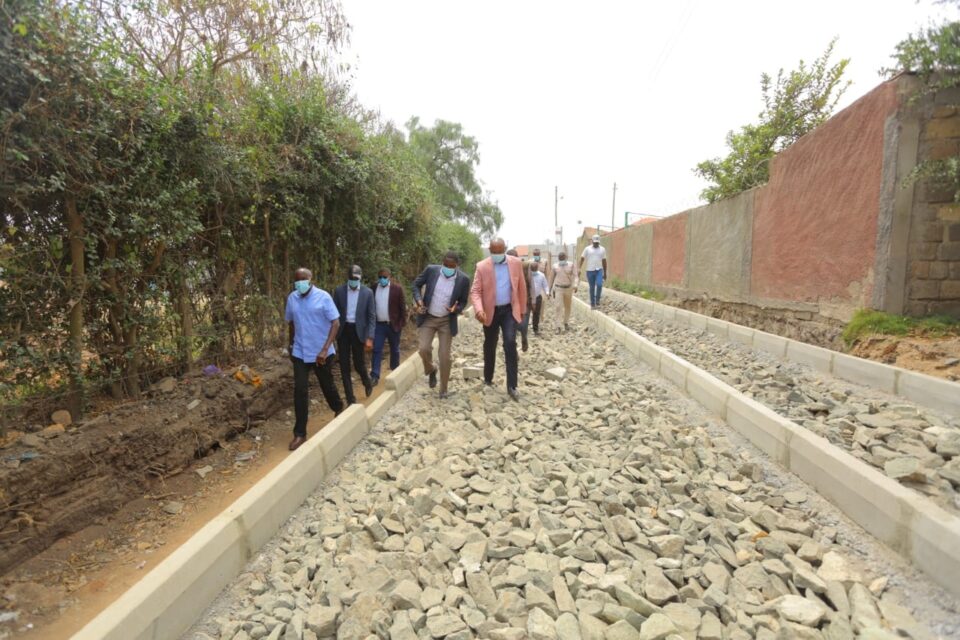Municipalities, not just in Kajiado, are finding it increasingly difficult to execute their mandate as they are yet to get full autonomy from the county government
Soon, Kajiado town will have a Public Square. Here, people will gather for relaxation and engage in other leisure activities. The Square, measuring about three quarters of an acre and which is behind Eastmatt Supermarket used to be an informal market.
When complete, the Square, will also have a public toilet, the first in Kajiado town. According to Parsimei Gitau, the manager of Kajiado Municipality, the square, which is yet to be named, will be the equivalent of Jeevanjee Gardens in Nairobi. “When complete, this will not only be a place where people come to relax but will be an ideal meeting place for people who cannot afford to meet in restaurants and hotels,” explained Gitau.
The Square will also hold storage for 100,000 liters of water, where members of the public can access water in case of shortages. “Fire engines from the county headquarters will also be able to access water here,” said Gitau, adding that tents can also be erected in case events are to be held there.
What is more the Square will be equipped with WIFI, meaning that residents, especially students, can easily log in for online lessons, finish their assignments and even do transactions online. Gitau, who took Kajiado Star on a tour of the area, explained that one of the roads leading to the park, will be transformed into a Cultural Street, where traders will be able to exhibit and sell their wares.
“Kajiado is known for the rich and diverse culture, therefore traders dealing in cultural artefacts like the Shangas will be able to permanently exhibit their stuff for visitors to easily access them,” he said, adding that it will be a one-way street, with trees planted in the middle and a pedestrian walkway on the other end.
The establishment of a cultural museum in the Square is also in the pipeline.
Gitau terms those opposed to the project as dishonest individuals. “Some of them took part in the public participation process and even when it was passed by the County Assembly. Why was the project put it in the budget if it was not a priority?” he asks. “In fact, the Public Square was in the original plan of Kajiado Town.”
Initially, he recalls, that when municipality started laying ground for the project, they were faced with heavy resistance from investors in the vicinity. Today, however, the same investors are the most enthusiastic supporters of the project.
One investment that has really benefited from the municipal project is the Eastwood Hotel, right behind Eastmat, that is now clearly visible and easily accessible now that Culture Street is opening the place.

The square, whose construction is gathering pace, is part of a package funded by the World Bank to the tune of sh46 million. The package includes the tarmacking of 1.1 kilometers of roads within Kajiado Town. The roads were done by the Kenya Urban Roads Authority (KURA), with the municipality offering an oversight role.
Next in line includes the installation of street lights, well planned drainage and walkways, as well as dustbins.
The Kajiado Municipality manager says that in the two years they have been in existence and with the resources available to them, “we have done very well.” He nevertheless admits that they are faced with a number of challenges, chief among them, lack of autonomy.
Municipalities, he explains, not just in Kajiado, are finding it increasingly difficult to execute their mandate as they are yet to get full autonomy from the county government. Gitau explains that provisions for how municipalities operate are contained in, among others, the Urban Areas and Cities Act.
When fully operational and sufficiently autonomous, municipalities should be able to run affairs in areas under their jurisdiction, including public schools and hospitals. “We should also be able to collect revenue within the boundaries of the municipality,” says Gitau adding that this is not possible due to the fact that certain officials within the county government have refused to hand over the said functions of the municipality. This is in spite of the fact that Governor Joseph ole Lenku has issued two Executive Orders on the same.
Kajiado Municipality occupies sections of Dalalekutuk and Ildamat wards.
He attributes the stalemate to ignorance or vested interests, where the said officials do not wish to let go their cash cow. “I would however lay the entire blame on the Senate for not enacting the necessary legislation that would ensure progressive devolution to the lowest levels,” adds Gitau, who is also the secretary of Municipality Managers’ Association in Kenya.
The other major problem facing Kajiado Municipality is inadequate space. They are currently occupying rented space at the ACK premises, which Gitau says are barely enough for their needs. “As you can see, my office also doubles up as the boardroom. Our staff are increasing and this is the only place they work from,” he explains. “When we have meetings here, the staff are forced to move out.”
He took us to the incomplete municipality office complex nearby. “This used to be a hospital being renovated to accommodate us,” explains Gitau. “The contractor has not received a penny and renovation work has stalled as a result. Our only prayer is for funds to be availed so that work continues and we move in.”
